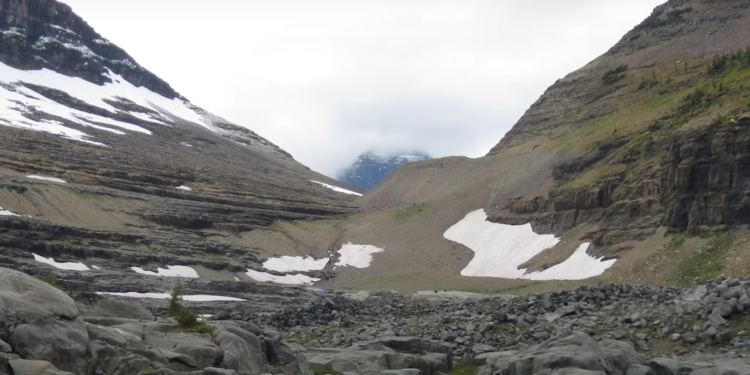A new study, published in January 2023, has established that the rate of glacial loss is far greater than expected. Even if global warming is kept to “only” 1.5°C above pre-industrial temperatures, it found that 49% of the world’s glaciers are likely to disappear by the end of the century.
If warming continues at the current rate, glacier loss is expected to be around 68% by 2100. This would mean a near-total loss of glaciers in the US, western Canada and Europe by the end of the century.
The paper, published last week in Science, projects that “glaciers will lose substantially more mass and contribute more to sea level rise than current estimates indicate.” The study follows research from 2021 which established that the speed at which glaciers are melting has doubled in the past 20 years.
Along with threatening the water supply of over two billion people, sea levels would rise by around 115mm, and even at 1.5°C, the rise would be approximately 90mm. Glacier loss is directly linked to increasing global temperature. The researchers wrote:
“The rapidly increasing glacier mass losses as global temperature increases beyond 1.5C stresses the urgency of establishing more ambitious climate pledges to preserve the glaciers in these mountainous regions.”
Small glaciers are the most vulnerable to rising temperatures and will be the first to be totally lost. The consequences of these losses will be both environmental and economic as small glaciers provide not only water to the communities around them but also financial gain from tourism.
Related Articles: Could the Rate at Which Glaciers Are Melting Cause the Next Pandemic? | Alps’ Glaciers Melting at Record Rate | 5 Visible Signs of Climate Change in Antarctica | Unprecedented Worldwide Water Crisis in 2021
Dr. David Rounce, the study’s lead author, has said that glaciers can really be “at the core of the societies and economies of those locations.”
Along with small glaciers, it is those in lower mountain ranges like the Alps and Pyrenees that are most vulnerable. Alpine glaciers will likely be 70% smaller already by 2050, with many of the smaller ones having completely disappeared.
But glacier loss is not a looming issue of the future. Shocking photographs of the Glacier 3000 ski resort in Switzerland show the Tsanfleuron pass in an unnatural bareness without the ice that has covered it for over two millennia.
What will glaciers take with them?
When glaciers disappear, effects on ecosystems will be devastating, with biodiversity plummeting as a result of bare rock replacing snow tops. A paper published in Frontiers in Ecology and Evolution lays out how the land laid bare by glacial retreat will allow more invasive plant species to take over, driving delicate alpine flowers out of their natural habitat.
Of course, the consequences of a species dying out does not end with that species. Extinction in ecosystems generally has a knock-on effect as dependent species can no longer survive – the basic science of the food chain.
The study’s lead researcher, Dr. Losapio of Stanford University, explains that these alpine plants are “primary producers” and that they provide “food for all of the ecosystem – the consumers, predators, parasites, herbivores and pollinators.”
In addition to biodiversity loss, studies such as this one warn that viruses and bacteria that have been locked in glacial ice could be released due to glacial melt, posing health risks to both animals and humans.
In 2016, an outbreak of anthrax in Northern Siberia was attributed to the release of spores through the thawing of permafrost after the region experienced abnormally high temperatures. The outbreak caused the death of a 12 year-old boy and hospitalisation of at least 72 others.
The study from Dr. Rounce and his colleagues is yet another emphasis that the most devastating effects of climate change are beginning now, if they haven’t begun already. The urgency of rapid action and inadequacy of current targets and efforts are not to be understated.
But the scientists who are publishing these studies all agree that the worst damage is, as yet, avoidable. “There is a small ray of hope and a positive message in our study,” says Professor Regine Hock, Dr. David Rounce’s co-author. “It tells us that we can make a difference, that actions matter.”
Putting pressure on governments and policy-makers to effect large-scale emission reduction remains incredibly important, and is the most promising way to make a difference in the fight against climate decline.
Editor’s Note: The opinions expressed here by the authors are their own, not those of Impakter.com — In the Featured Photo: Glacier National Park, Montana, US. Featured Photo Credit: NatGeo YouTube video (screenshot) https://www.youtube.com/watch?v=ur4I8tYnxP4
–.










